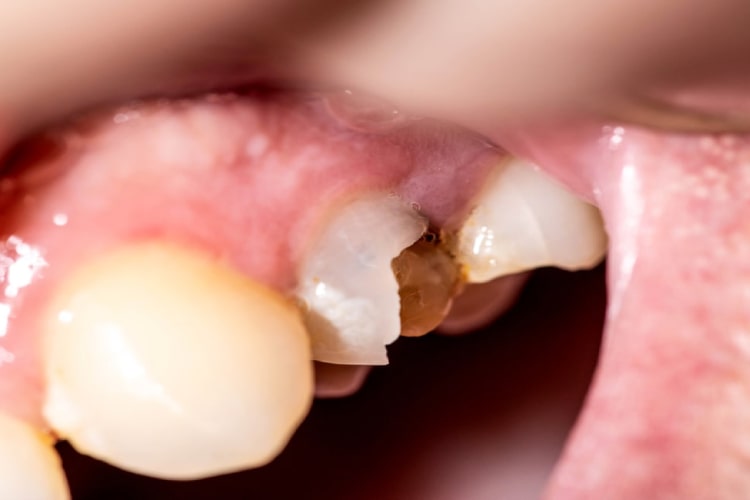
ROOT CANAL TREATMENT
Indications You May Need A Root Canal
A root canal treatment is performed on a natural adult tooth with a deep cavity or a cracked/damaged tooth often caused by a trauma/injury. The goal is to save the tooth without pulling it. For some people, the severity of infected teeth may not be known, while others may notice some signs that indicate a required root canal surgery.
The Procedure
Root canal treatment is performed and completed in three stages. Each endodontist procedural step ensures minimizing the risk of infections so that the patients achieve the best results.

EXTIRPATION
The infected tooth and gums are numbed. A rubber dental dam is placed over the area to isolate the tooth and keep it dry. A small hole is then drilled on top of the tooth to access the inside of the tooth. Damaged tooth nerves, tissues, and blood vessels are removed using small dental files, infection is controlled, and the tooth is medicated.

INSTRUMENTATION
A more thorough cleaning of the root canal is executed to eliminate all remaining bacteria and infection inside the root canal. The pulp chamber is cleaned in detail, and the root canal is disinfected and shaped to ensure that the bacteria is under control and the tooth becomes pain-free.

OBTURATION
When the patient gets complete relief from pain, and there are no more signs of infection and bacteria, the empty root canal is filled with special gutta-percha material. The tooth and root canal are then sealed with temporary dental filling to prevent the re-entry of bacteria. Often a dental crown is required.

COMPLETION
After completion of this endodontic procedure, most patients receive a final dental restoration – a custom-made dental crown to protect the treated tooth and fix the bite. Our expert endodontists make the process as pain-free and comfortable as possible to ensure the patient receives safe and successful treatment.
Before Your Root Canal Surgery

ANTIBIOTICS
Take the prescribed antibiotics or anti-inflammatory medications for a few days before the procedure.

NO SMOKING
Avoid smoking or chewing tobacco several days beforehand as it can interfere with the body’s ability to heal itself.

EAT HEALTHY
Eat a healthy meal and drink plenty of water before the appointment.
Post-Treatment Care
Root canal treatment is a dental or endodontic procedure done to save the severely damaged or infected actual tooth. It is essential to practice a proper aftercare routine following the root canal treatment to guard the mouth against re-infection and alleviate any discomfort or pain.
To ensure a smooth and speedy recovery after root canal therapy, every dentist or endodontist provide their patients with the following aftercare instructions:
- Do not eat anything right after the procedure until the mouth no longer feels numb. When you are allowed to eat, start with liquid or soft diets. Be careful not to put pressure on the treated tooth while chewing or biting food until tenderness has resolved from that area. Also, hold off on having sticky foods until the risk of re-infection has passed and healing is over.
- Take out time to relax at least for the first two days and avoid any strenuous activities while recovering.
- Gargle your mouth with warm salt water (1/2 teaspoon of salt in one cup of warm water) to keep your mouth clean and avoid infection of the gums next to your treated tooth.
- Keep your head elevated while sleeping until the swelling and soreness around your mouth subsides.
- While recovering, avoid drinking fluids with straws, smoking, drinking hot beverages, and alcohol consumption as all of these can encourage inflammation of the treated site.
- Eat ice cream or apply ice packs/ cold compresses every 10-15 minutes several times a day following the treatment to keep the swelling down.
- A good dental hygiene regimen that includes proper brushing and flossing and even regular dental check-ups is critical to keeping the treated tooth healthy in the future.







